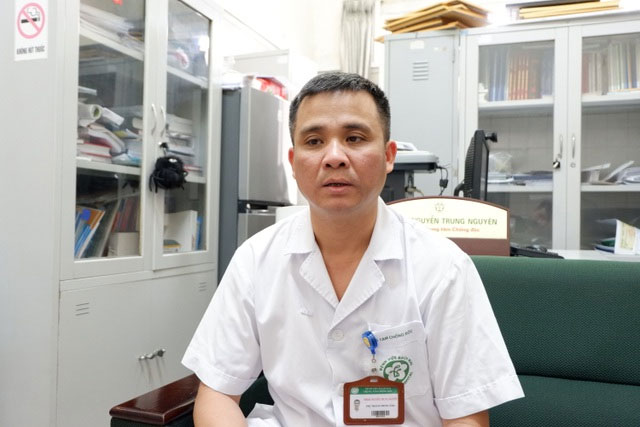Traveling to the sea, be careful with what kind of specialties?
Cases of food poisoning mainly focus on the heat phase, the cause of poisoning can be caused by chemicals and natural toxins of food, but above all, it is still caused by microorganisms.
The beach is a favorite destination for many families to relax and cool off in the summer. Along with the sea, enjoying the seafood dishes is almost an indispensable part of a sea trip.
However, it should be noted that seafood has a high risk of food poisoning. Therefore, special care should be taken when enjoying this type of coastal specialties, especially when our country is entering the peak of food poisoning.
The risk of cholera and "cannibalizing" bacteria from seafood
From clinical practice, Dr. Nguyen Trung Nguyen, Director of the Poison Control Center, Bach Mai Hospital, said that the food poisoning cases mainly focused on the heat phase, the cause of poisoning may be due to chemicals, natural toxins of food but above all still by microorganisms, because the typical weather of summer is an ideal condition for the growth of microorganisms.
'According to research conducted by the Poison Control Center, the leading cause of poisoning for seafood are bacteria in the group of bacteria that live in sea and brackish water environment' - said Dr. Nguyen Trung Nguyen.

Doctor Nguyen Trung Nguyen, Director of Poison Control Center, Bach Mai Hospital
One of the most common types of cholera is Vibrio cholerae, which causes cholera. People with cholera have clinical manifestations of diarrhea, vomiting many times quickly leading to dehydration, loss of electrolytes. If not treated promptly, heart failure, exhaustion and death will develop.
Besides cholera, seafood can also contain Vibrio vulnificus , also known as 'Cannibal bacteria'. In fact, these types of bacteria do not literally eat humans, instead they cause necrotizing fasciitis.

The hand of a Korean man infected with the flesh-eating bacteria after eating seafood.
Specifically, the toxins of Vibrio vulnificus bacteria will cause inflammation leading to destruction of connective tissue, adipose tissue and muscle tissue. Early signs of Vibrio Vulnuficus infection include: fever, necrotic blisters. In severe cases, patients may develop systemic infection, with an average death rate of up to 50%.
We have a high risk of being infected with bacteria when eating raw seafood such as raw oysters, fish salad, squid salad . or not properly processed seafood .

Oysters are a potential food poisoning risk
Even cooked seafood should eat soon after processing, because they will quickly be invaded by bacteria and grow outside. Some types of seafood such as mackerel, tuna, if infected, the fish meat will be turned into histamine toxins, if ingested will cause skin redness, hot flashes, headache, shortness of breath .
Cooked seafood also carries a potential risk
'In the summer, restaurants are often crowded, so food hygiene and safety in the preparation of raw materials, as well as processing is often not guaranteed, so there is a potential risk of bacteria from the environment. into food or other types of bacteria in food that have not been completely destroyed because of inadequate cooking. In addition, with protein-rich foods such as seafood, the storage process is not guaranteed, there is a potential risk of poisoning, '' said Dr. Trung Nguyen.

Cooked seafood should also be eaten soon after processing.
In addition to the bacteria, seafood is also home to many other parasites such as hepatitis A virus, helminths, and if cooked seafood is not cooked well, there is a risk of parasitic diseases and hepatitis. Ah .
Do not be "curious" of lest money lost disability
In addition to microbiological poisoning, according to the director of the Poison Control Center, the risk of poisoning because of the natural toxins of food is not small. Therefore, this expert recommends that you should avoid foods that have been warned to contain toxins, typically puffer fish. Besides, be careful, alert with dishes that are considered to be unique (unique) specialties, strange, rare, because of the potential danger of containing natural toxins .
- Spices that make up the typical dishes of the country
- How to fight mosquitoes and squeeze bites while traveling
- Big butt ant dish - irresistibly delicious specialties of Colombia
- Things to remember before traveling
- Be careful to fire when charging the car
- There is a kind of gene that makes some people crave adventure
- Experience traveling Hung Temple, Phu Tho
- Specialties can be deadly
- Devil fingers and series of exotic shape sea specialties
- Turn invasive creatures into specialties
- The self-declared man died 17 years ago, traveling time to 2018?
- 10 unique specialties of the land of thousands of Kon Tum
 Soaking vegetables in salt water does not remove chemicals but you should still do it
Soaking vegetables in salt water does not remove chemicals but you should still do it You should limit bamboo shoots if you have 1 in 5 of these diseases
You should limit bamboo shoots if you have 1 in 5 of these diseases Mistakes when soaking vegetables in salt water
Mistakes when soaking vegetables in salt water Risk of death when combining shrimp with vitamin C
Risk of death when combining shrimp with vitamin C